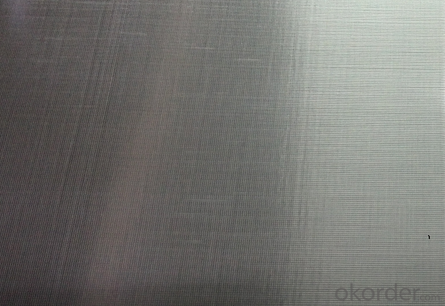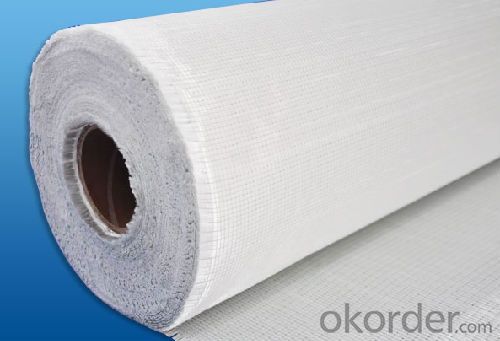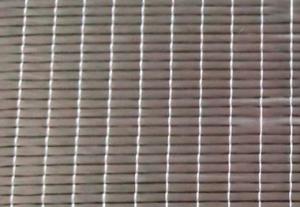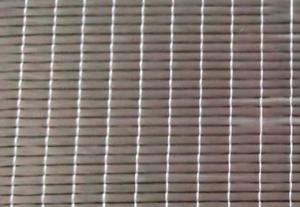Fiberglass Unidirectional fabric 1000gsm 1524mm
- Loading Port:
- Shanghai
- Payment Terms:
- TT or LC
- Min Order Qty:
- 2000 kg
- Supply Capability:
- 30000 kg/month
OKorder Service Pledge
OKorder Financial Service
You Might Also Like
Structure of unidirectional fiberglass fabric Description:
An engineering material, which has many excellent characterstics, such as anti-burning, corrosion resistent, stable structure, heat-isolating, minimum elongated shrinkage, high intensity, etc. This new material product has already covered many domains such as electric appliance, electronic, transportation, chemical engineering, architectural engineering, heat insulation, sound absorption, fire prevention and environmental protection, etc. According to fabric organizational structure and appearance, there are such kind of products: plain weave, twill weave, satin weave, gauze weave.
Main Features of the unidirectional fiberglass fabric:
1)Plain veave,even thickness and low fuzz;
2)High strength in both warp and weft direction;
3)Incombustibility,corrosion resistance and heat resistance;
4)E-Grade Fabric (E-fiberglass Textile Cloth) has excellent electricity insulation property.
Unidirectional fiberglass fabric Images:


Unidirectional Specification:
specifications | Fibre type | 0°Roving | 90°Roving | Overall weight | Width |
(g/㎡) | (g/㎡) | (g/㎡) | (mm) | ||
EDW227 | E-Glass | — | 227 | 227 | 1524 |
EDW350 | E-Glass | — | 350 | 350 | 1524 |
EDW450 | E-Glass | — | 450 | 450 | 1524 |
EDJ600 | E-Glass | 480 | 120 | 600 | 1524 |
EDJ800 | E-Glass | 600 | 200 | 800 | 1524 |
EDJ1000 | E-Glass | 600 | 400 | 1000 | 1524 |
Packaging: Wrapped in PVC and placed within a cardboard carton. | |||||
FAQ of woven roving:
1. Why Choose us?
CNBM is a stated own company, provide the guarantee for the best quality, best service and safety business.
2. How will we guarantee the quality?
a, ISO 9001-2008 quality control system;
b, Strict and regular quality control in production;
c, Inspeciation when loading into container before shippment;
d, Sample stock for one year for quality tracing and record.
3. What is your MOQ?
Our MOQ is one pallet.
4. Can you provide sample?
Yes, samples are in stock. we can offer free sample for you.
5. Payment terms?
We can accept L/C, T/T etc.
6. Do you offer OEM service?
Yes, we can print customers’ logo on the packaging;
And the size and specification can be produced and design according to your demand.
- Q:Can fiberglass mat tissue be used for automotive repairs?
- Automotive repairs can indeed utilize fiberglass mat tissue. This versatile material finds its application across various industries, including the automotive sector. It serves to reinforce and mend auto body panels, while also addressing cracks, holes, and other damages that may afflict the vehicle's body. Comprised of resilient fibers held together by a resin, fiberglass mat tissue boasts exceptional strength and flexibility. As a result, it proves to be an ideal choice for automotive repairs. Its malleability allows it to conform to different contours and shapes of car parts, ensuring a seamless and precise restoration. Moreover, fiberglass mat tissue possesses the desirable qualities of being lightweight and durable, both of which are vital attributes for automotive repairs. It offers unparalleled resistance against corrosion, weathering, and other external elements, thereby guaranteeing the longevity of the repair. Additionally, it provides reliable impact resistance, effectively safeguarding the repaired area from further harm. Furthermore, fiberglass mat tissue harmonizes effortlessly with a wide range of automotive coatings, including primers, paints, and clear coats. This compatibility ensures a flawlessly smooth and professional finish once the repair work is completed. To summarize, fiberglass mat tissue stands as an appropriate choice for automotive repairs due to its formidable strength, flexibility, durability, and compatibility with automotive coatings. It is commonly employed in the industry to reinforce and mend auto body panels, address damages, and achieve an impeccable finish.
- Q:What is the abrasion resistance of fiberglass mat tissue?
- The abrasion resistance of fiberglass mat tissue is high, making it suitable for applications that require durability and resistance to wear and tear.
- Q:What are the different thickness tolerances for fiberglass mat tissue?
- The thickness tolerances for fiberglass mat tissue can differ depending on the manufacturer and product specifications. Generally, fiberglass mat tissue is offered in a range of thickness tolerances from 0.5 millimeters (mm) to 3 mm. The tolerance represents the acceptable range of thickness variation within a product. For instance, a fiberglass mat tissue with a thickness tolerance of +/- 0.5 mm means that the actual thickness can deviate by up to 0.5 mm in either direction from the specified thickness. The required tolerance for a specific application depends on the intended use and desired precision. Thicker fiberglass mat tissues with smaller tolerances are commonly utilized in applications that demand greater strength and durability, like reinforcing concrete in the construction industry or manufacturing composite materials. Conversely, thinner fiberglass mat tissues with larger tolerances may be employed in applications where flexibility and conformability take precedence, such as insulation or soundproofing in the automotive industry. To obtain accurate information regarding available thickness tolerances for fiberglass mat tissue, it is crucial to refer to the manufacturer's specifications or contact a supplier. These tolerances can significantly vary based on the specific product and supplier.
- Q:Is fiberglass mat tissue resistant to acids?
- Yes, fiberglass mat tissue is generally resistant to acids. Fiberglass is known for its excellent corrosion resistance properties, and this includes resistance to various acids. The combination of fiberglass mat and resin creates a strong and durable material that can withstand exposure to a wide range of chemicals, including acids. However, it is important to note that the specific type and concentration of acid can still affect the resistance of fiberglass mat tissue. In some cases, certain highly concentrated or aggressive acids may cause damage or degradation to the material over time. Therefore, it is always advisable to consider the specific acid being used and consult the manufacturer's recommendations for compatibility before exposing fiberglass mat tissue to any acidic environment.
- Q:Does fiberglass mat tissue require any special handling precautions?
- Yes, fiberglass mat tissue does require special handling precautions. It is important to wear appropriate protective gear such as gloves, goggles, and a respirator when working with fiberglass mat tissue to prevent skin, eye, and respiratory irritation. Additionally, it is recommended to work in a well-ventilated area to minimize exposure to fiberglass particles.
- Q:Can fiberglass mat tissue be used for thermal insulation?
- No, fiberglass mat tissue is not typically used for thermal insulation. It is primarily used for reinforcing and providing strength to composite materials such as fiberglass sheets or panels. For thermal insulation purposes, other materials such as mineral wool, foam, or cellulose insulation are commonly used.
- Q:What are the different types of fiberglass mat tissue available in the market?
- In the market, you can find various types of fiberglass mat tissue, each with its own distinct characteristics and applications. 1. Chopped Strand Mat (CSM): This is a commonly used fiberglass mat tissue. It consists of randomly oriented chopped strands of glass fibers held together by a binder. CSM is widely utilized in industries like construction, automotive, and marine due to its excellent strength and cost-effectiveness. 2. Continuous Filament Mat (CFM): Unlike CSM, CFM is made up of continuous strands of glass fibers. This type of fiberglass mat tissue offers enhanced strength and stiffness, making it suitable for applications that require higher performance and durability. 3. Woven Roving: Woven roving is created by weaving parallel rovings together. It provides a higher strength-to-weight ratio compared to CSM and CFM, making it ideal for applications that require additional reinforcement. 4. Surface Veil: Surface veils are lightweight fiberglass mat tissues primarily used for surface protection and cosmetic purposes. They are typically applied as a thin layer on the surface of other fiberglass materials to improve smoothness, appearance, and resistance to cracking or chipping. 5. Stitched Mat: Stitched mat is a type of fiberglass mat tissue where the fibers are stitched together using thread or yarn. This stitching enhances the mat's stability and structural integrity, making it suitable for applications that require enhanced dimensional stability and strength. 6. Composite Mat: Composite mat is a combination of different materials, including fiberglass, polyester, and other synthetic fibers. It offers a unique combination of properties such as strength, flexibility, and resistance to chemicals, making it suitable for a wide range of applications. In conclusion, the market provides a diverse range of fiberglass mat tissues to cater to specific needs and requirements in various industries.
- Q:What are the key properties of fiberglass mat tissue?
- Fiberglass mat tissue is a versatile material that possesses several key properties. Firstly, it is made from fine glass fibers that are randomly oriented and bonded together with a binder. This random orientation allows for greater strength and flexibility compared to other materials. One key property of fiberglass mat tissue is its high tensile strength. It can withstand significant amounts of pulling or stretching forces without breaking, making it ideal for applications that require durability and resistance to mechanical stress. Another important property is its excellent thermal insulation capabilities. Fiberglass mat tissue has a low thermal conductivity, meaning it can effectively prevent the transfer of heat. This property makes it suitable for use in insulation applications where it helps to conserve energy and maintain a stable temperature. Fiberglass mat tissue also exhibits good chemical resistance. It is not easily affected by exposure to chemicals, acids, or alkaline substances. This property makes it a suitable choice for applications such as chemical storage tanks or pipes where resistance to corrosion is required. Furthermore, fiberglass mat tissue has excellent moisture resistance. It does not absorb water easily, which makes it resistant to rot and decay. This property makes it suitable for outdoor applications or in environments with high humidity. Lastly, fiberglass mat tissue is lightweight and easy to handle. It can be easily cut, shaped, and installed, making it a convenient material for various applications. In summary, the key properties of fiberglass mat tissue include high tensile strength, thermal insulation capabilities, chemical resistance, moisture resistance, and lightweight. These properties make it a versatile material that can be used in a wide range of applications such as construction, automotive, aerospace, and marine industries.
- Q:Can fiberglass mat tissue be used for insulating exterior walls?
- Yes, fiberglass mat tissue can be used for insulating exterior walls. It is a commonly used material for insulation due to its thermal resistance properties and ability to improve energy efficiency in buildings.
- Q:Can fiberglass mat tissue be used for ballistic protection?
- No, fiberglass mat tissue cannot be used for ballistic protection. It is not designed or tested to withstand the high-velocity impact of bullets or projectiles. Ballistic protection requires specialized materials such as Kevlar, aramid fibers, or ceramic plates that are specifically engineered to provide adequate protection against ballistic threats.
1. Manufacturer Overview |
|
|---|---|
| Location | |
| Year Established | |
| Annual Output Value | |
| Main Markets | |
| Company Certifications | |
2. Manufacturer Certificates |
|
|---|---|
| a) Certification Name | |
| Range | |
| Reference | |
| Validity Period | |
3. Manufacturer Capability |
|
|---|---|
| a)Trade Capacity | |
| Nearest Port | |
| Export Percentage | |
| No.of Employees in Trade Department | |
| Language Spoken: | |
| b)Factory Information | |
| Factory Size: | |
| No. of Production Lines | |
| Contract Manufacturing | |
| Product Price Range | |
Send your message to us
Fiberglass Unidirectional fabric 1000gsm 1524mm
- Loading Port:
- Shanghai
- Payment Terms:
- TT or LC
- Min Order Qty:
- 2000 kg
- Supply Capability:
- 30000 kg/month
OKorder Service Pledge
OKorder Financial Service
Similar products
New products
Hot products
Related keywords





























